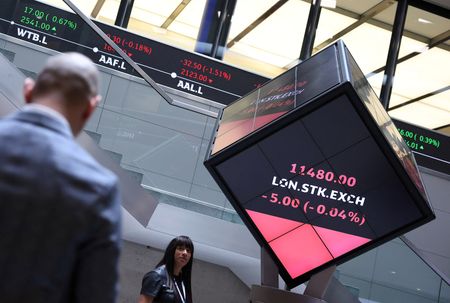ROME (Reuters) -In Italy, long burdened by slow economic growth, the number of companies using artificial intelligence is limited compared to other European Union countries, according to figures released on Wednesday by national statistics bureau ISTAT.
In its wide-ranging annual report, ISTAT said that only eight out of 100 Italian enterprises were using AI last year, a lower percentage than the figure for France and Spain, and well below the level of almost 20% in Germany.
In general, digital know-how in Italy falls short of European targets, ISTAT said.
Only 45.8% of Italians aged 16-74 had at least basic digital skills in 2023, according to the latest available data, compared to an EU27 average of 55.5% and European targets aiming for 80% by 2030.
The percentage declines to a low of 36.1% in the economically underdeveloped Mezzogiorno – Italy’s six southern regions plus the islands of Sicily and Sardinia.
Against a challenging economic backdrop, compounded by a deep demographic crisis, a growing number of young educated Italians have decided to try their luck abroad.
In 2023, 21,000 graduates aged 25-34 left Italy, a 21.2% year-on-year rise, ISTAT said, adding that the net loss of qualified young workers was 97,000 over 10 years.
Prime Minister Giorgia Meloni’s government halved its full-year 2025 growth forecast last month to 0.6% from a 1.2% target set in September, amid mounting uncertainty due to U.S. trade tariff policy.
In the first quarter the Italian economy grew by 0.3% from the previous three months, based on preliminary data.
(Reporting by Antonella Cinelli and Alvise Armellini, editing by Keith Weir)










